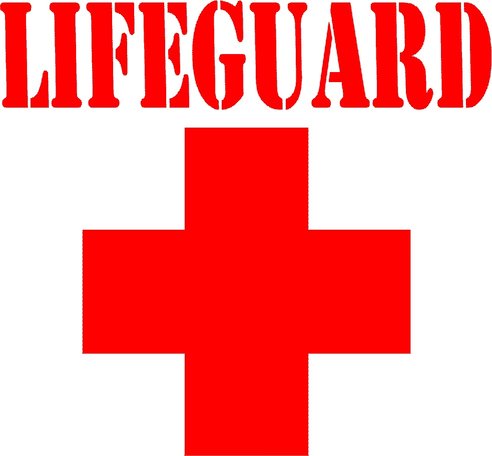“It seemed like a good idea at the time.”
As a liberal arts grad with mountains of debt and molehills of direction, I took an analyst job at a top NYC investment bank. Neck-deep in spreadsheets and working around the clock, I fought to keep my head above water in a sea of brilliant, khaki-clad sociopaths. While the money and education were great, I quickly learned how the finance world really works... and I wanted no part of it. After 9/11, I left for good.
I worked in NYC, so there were no cars or parking lots. That said, I did once hear our department head shout to one of his underlings. "Hey Dave, cancel your lunch and come watch me buy a Bentley!" I wish I was kidding.
While I'd love to say, "Absolutely!", the truth is, it's tough. Not impossible, but tough.
Investment banks look for the smartest and most hardworking candidates, and, rightly or wrongly, education pedigree is a big part of that screening. The majority of analysts come from top-tier private schools, as well as a handful from top-tier public institutions with good finance programs such as UVA, Michigan, and UNC. Assuming that your school doesn't fall into the categories above, there are a few things you can do to increase your chances of getting in the door.
The first step is obvious: identify the banks you're interested in and apply as anyone else would. Contact (and be especially nice to) their HR/Recruiting departments, and submit your resume for consideration. This is just a baseline measure to get yourself on file, but you may also gain an ally or two in HR along the way. Keep in mind that while the halls of investment banks are wallpapered with Ivy League diplomas, the HR/Recruiting departments are typically more down-to-earth in that regard. And besides, everyone loves an underdog :)
Second, another obvious point: use the HELL out of your alumni network. I don't care if you go to Southeast Podunk State U., SOMEONE from your school has taken the path you're interested in. Identify these people through your alumni directory or career services office and don't be afraid to ask for help. Chances are they were in a similar predicament as you not too long ago, and while they may not ALL come to your aid, the odds are that at least one will offer a hand in getting your resume in the right pile.
Lastly - and this one's a biggie - don't limit yourself to just the big-name banks. It's easy to get sucked into chasing the Goldman Sachs, Morgan Stanleys, and J.P. Morgans of the world, but there are quite a few smaller, boutique banks where you'll get every bit as good (and possibly better) of an experience. The big banks have so many employees that it's easy to become a very small cog in a big machine. Where at a smaller bank, you're less likely to be pigeonholed, more likely to get exposure to company leaders, and far more likely to take on greater responsibility. And once you've learned the ropes, after 2-3 years you'll have hurdled the school biases and become just as qualified as anyone to work at any bank, big or small.
When all is said and done, the hardest part is getting into the industry. But once you can show – even at a smaller bank – that you're every bit as capable as the next guy, you're on (or damn close to) equal footing going forward. Fwiw, during my time in banking, an employee's effectiveness and school reputation were highly UNcorrelated. I met plenty of morons from Harvard and rock stars from Penn State.
If you know early on that you want to go into investment banking (or any kind of corporate finance, for that matter), the best majors are Finance and/or Accounting. In my experience, the finance jocks (mainly from Wharton and Michigan) had a huge leg up and required far less hand-holding. The senior bankers loved these guys – understandably – because they were well up the learning curve from the get-go. Engineering, Applied Mathematics, and Computer Science majors also tend to do well as analysts, given their proficiency with numbers and Excel.
That said, liberal arts majors can do just fine in banking, it just takes them longer to get up the learning curve. It's all about having good mentors, maintaining the right attitude, asking the right questions, and really absorbing the answers. I had a liberal arts degree, which basically meant zilch in terms of vocational expertise. But I had solid quantitative skills, so I got by.
When all is said and done, your major won't make or break you in becoming a banker (or, frankly, any other profession). If you're 100% sure that corporate finance is what you want to do with the rest of your life, then a Finance or Accounting degree makes sense. But very few people have that kind of certainty while still in college, so my recommendation would be to major in whatever interests you most, independent of post-college vocation.
Every time my desk phone rang, my heart felt like it was going to jump out of my chest. Any one of those calls could mean I would be chained to my desk all night. New projects frequently surfaced late in the day. If your phone rang at 6pm, it was often a staffer calling about an "emergency" project that needed to get done that night, come hell or high water. And you had zero say in the matter. So, at the risk of beating a dead horse, the real "fear" all goes back to the unpredictability of schedule. Don't get me wrong, everyone in every job at every company has bad days at work, but typically they can at least gauge when their day is likely to end. But imagine having NO idea when your day would actually end, with the very real possibility that it wouldn't. Terrifying to say the least.
SWAT Team Commander (Retired)
 How much protection do those bomb disposal suits really provide?
How much protection do those bomb disposal suits really provide?
Air Traffic Controller
 When would you order fighter jets to be scrambled?
When would you order fighter jets to be scrambled?
Lifeguard
 Are most public pools just gross lakes of bodily fluids?
Are most public pools just gross lakes of bodily fluids?
If you're interested in a career-switch to finance, business school is a good way to do this. In two years you can absorb the skill set to qualify for finance positions. In fact, you can use your biology background to your advantage, especially if you're interested in doing finance in healthcare-related fields. For example, I worked with an investment banking associate who'd completed medical school, and naturally his focus was on healthcare transactions.
Breathe easy – unless your last name is Buffett, there are virtually no banking internships available to anyone until after his or her JUNIOR year. And even after junior year, there are very few internship spots available. My firm, for example, hired 10-12 summer interns (all of whom had just completed junior year) and 150 1st-year analysts. This ratio was common across Wall Street.
That said, you can still make this summer count by pursuing internships with smaller, boutique banks and financial services. Don't worry if they're not "big name" firms – having any financial services exposure, even a small investment firm in your hometown – is like catnip to investment banks. I'd also recommend looking into internships with companies in the sector you'd be most interested in focusing on when you DO go into banking. For example, if you're interested in tech, doing an internship with a tech company would be extremely relevant to your banking career as it would develop your industry expertise and focus.
It's funny – one can major in underwater basket-weaving in college and get an investment banking job after graduation, but if someone's a few years removed from college and has no finance background, it's significantly tougher. The advice I typically give to those with no finance background looking to make a career-switch into finance is to consider business school. It can be an expensive proposition, but it does legitimately qualify you for an entirely new line of work (in this case, banking/finance). Furthermore, you can intern during your time in school and get a better sense of whether the transition is for you.
-OR-
 Login with Facebook
Login with Facebook (max 20 characters - letters, numbers, and underscores only. Note that your username is private, and you have the option to choose an alias when asking questions or hosting a Q&A.)
(A valid e-mail address is required. Your e-mail will not be shared with anyone.)
(min 5 characters)
By checking this box, you acknowledge that you have read and agree to Jobstr.com’s Terms and Privacy Policy.
-OR-
 Register with Facebook
Register with Facebook(Don't worry: you'll be able to choose an alias when asking questions or hosting a Q&A.)